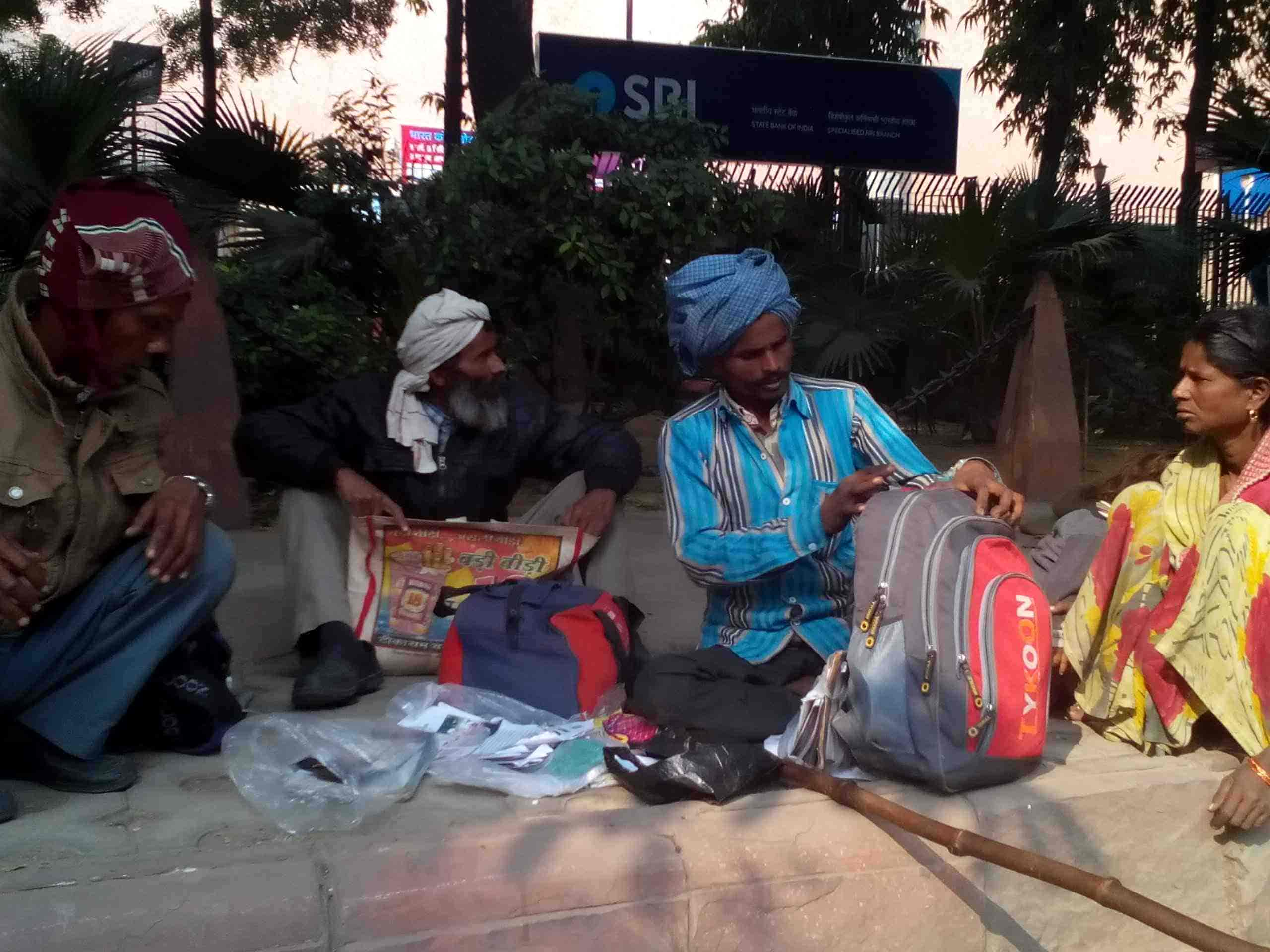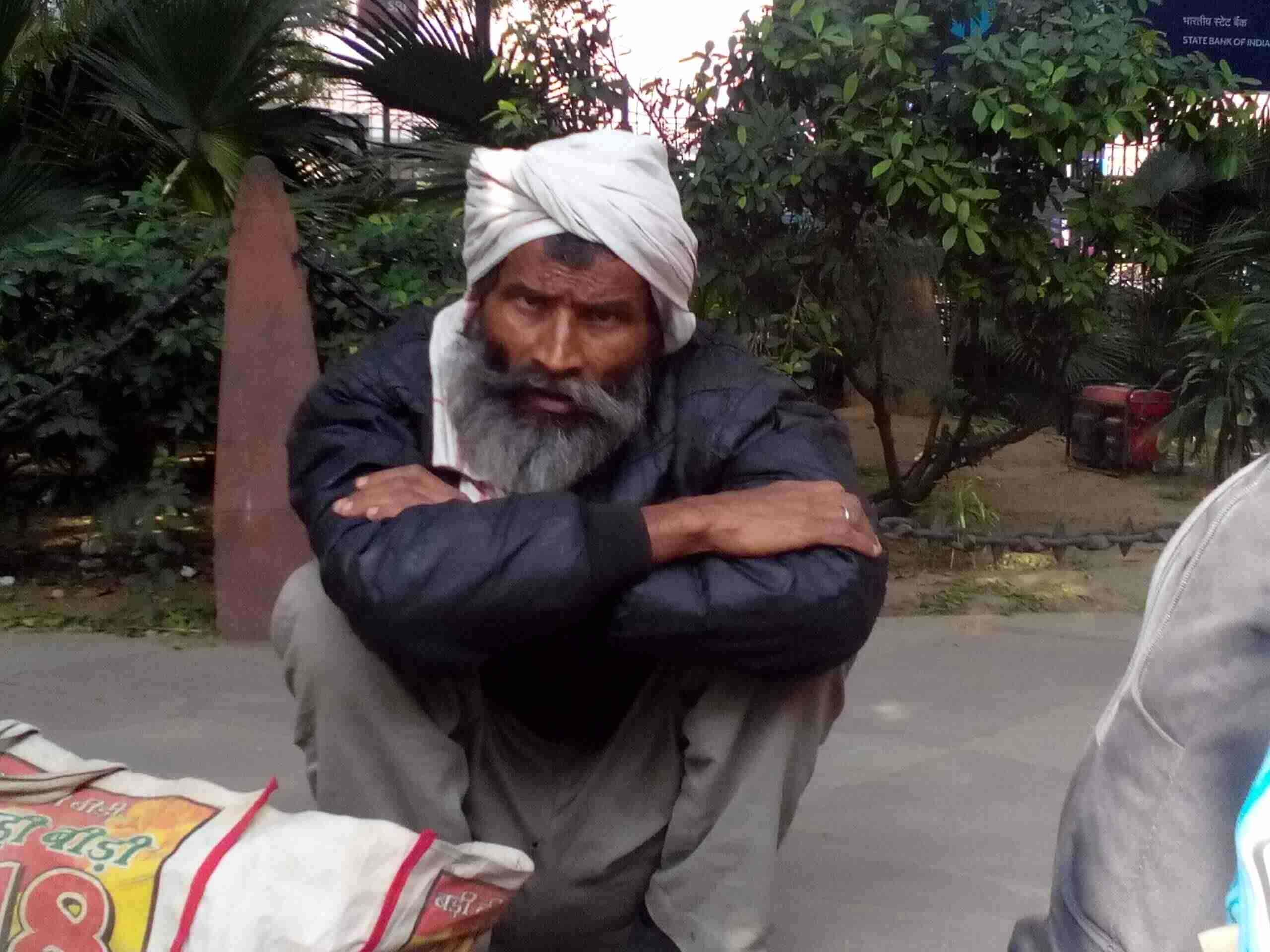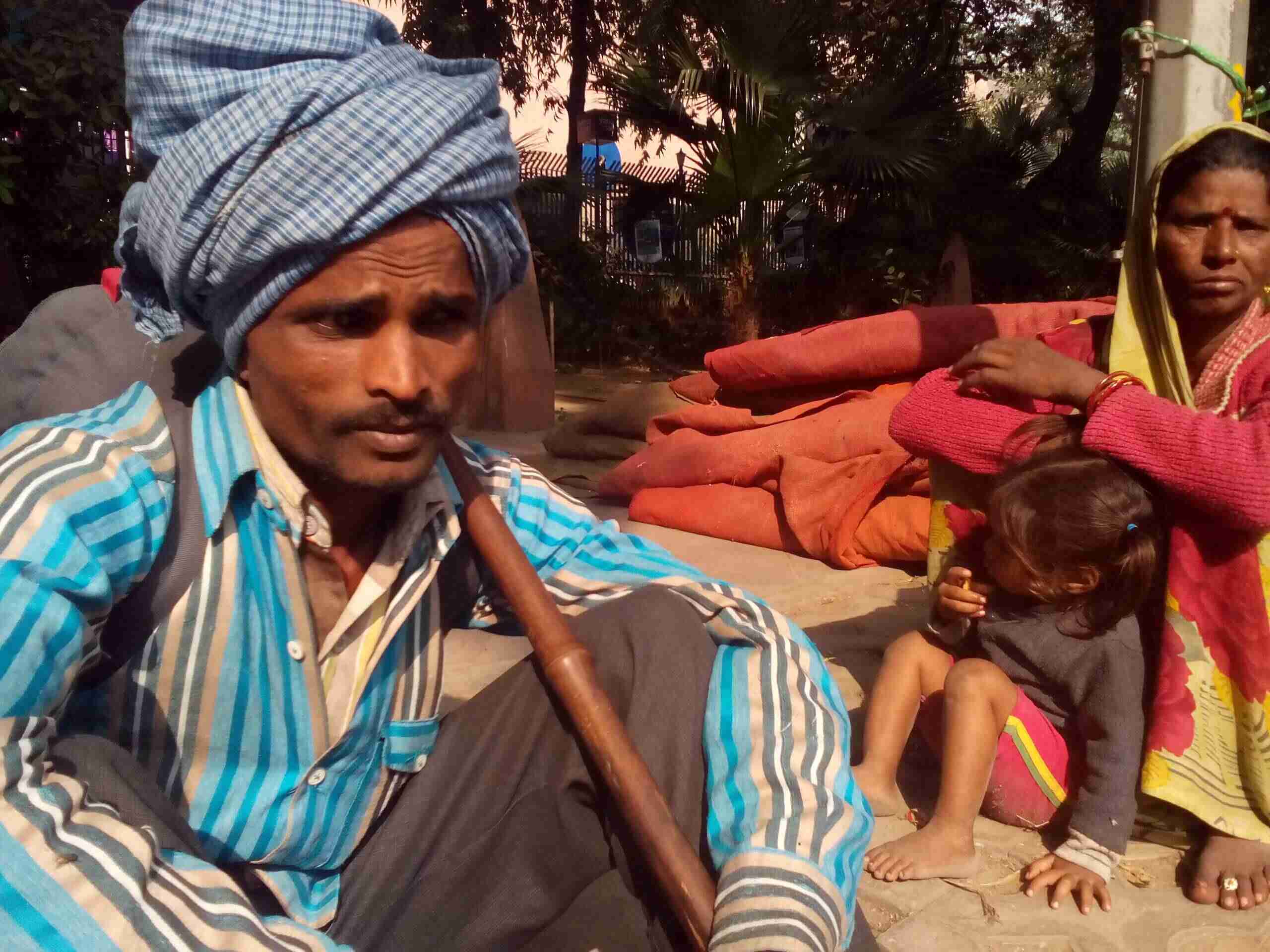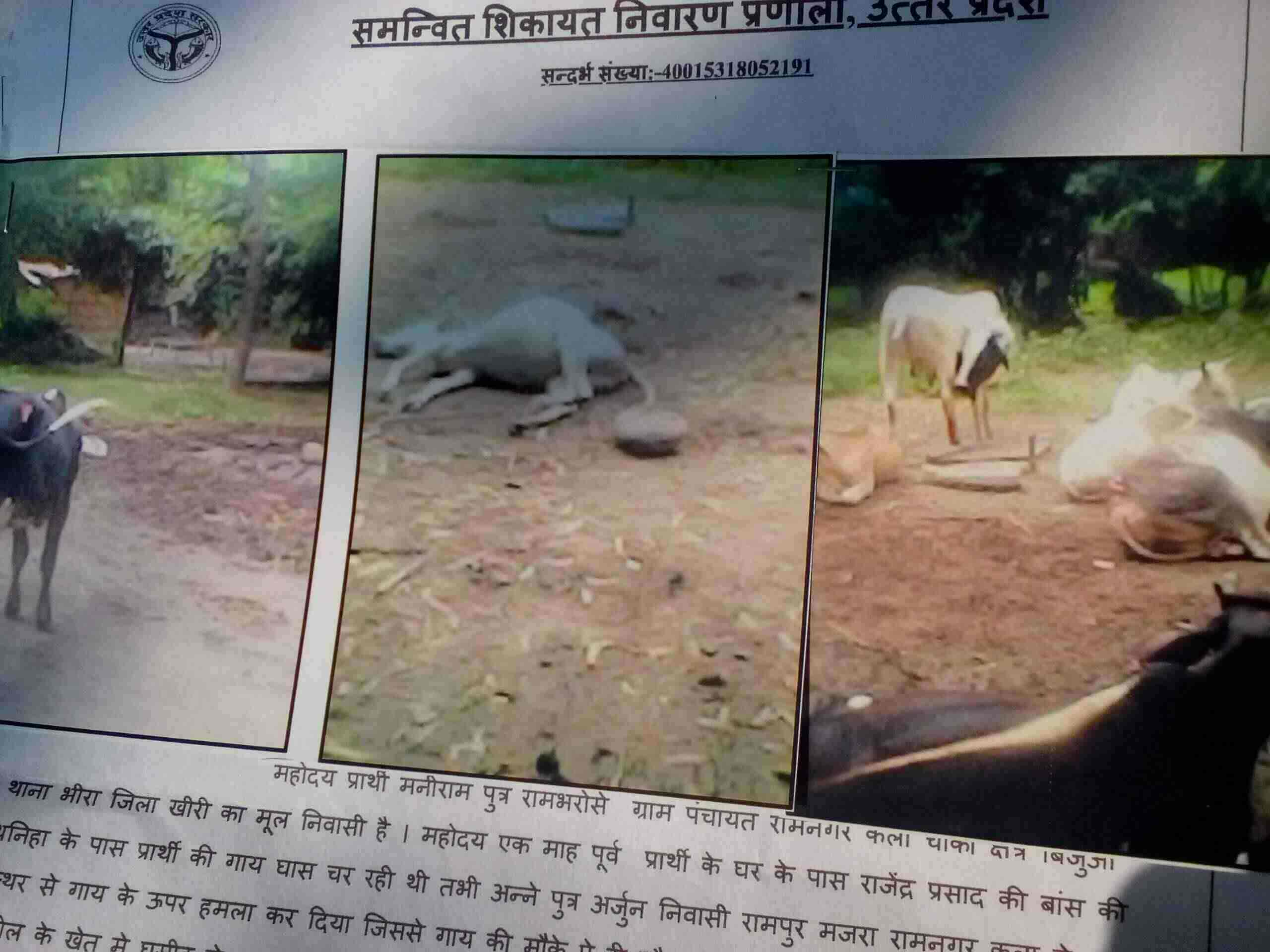Listener of Small Voices | Posted on |
Land Grabbing in Uttar Pradesh
0
5986 Views
“Protesting cow killing is convenience not conviction”
There was frenzied sloganeering and mike-amplified homilies on the 26th anniversary of the demolition of Babri Masjid in Ayodhya on December 06 by politicos and the public alike. Cleaved between these big groups was a small, bewildered huddle of four from Lakhimpur Kheri in Uttar Pradesh.
“Our land has been grabbed by the local political mafia, we want it back. No one is listening to us back in our village or in Lucknow, so we’ve come here to be heard,” they say.

(Group from Lakhimpur kheri)
They hail from Ramnagar Kalna, a small village 187 km north of Lucknow and 470 km east of Delhi, with a population of fewer than 4,000 people.
“We have been living there for generations, but our pradhan Prem Singh has forcefully taken our land and sold it to outsiders. When we are demanding an investigation, we are being threatened and harassed. What law is this?” they say.
Nathu’s huts – he claims 10 of them – have been taken from him arbitrarily. “Nobody listens to us there. Everyone has taken money – the local administration and the police. If any policeman does give us a sympathetic ear, he is threatened with a transfer. What justice is this?” he demands.

(Nathu)
The issue of land grabbing is obviously significant as indicated by the Yogi Yojana programme initiated by UP Chief Minister Yogi Adityanath that has an “anti-bhoo mafia portal” on which complaints of land grabbing can be registered.
One of them – Maniram, who is also visually impaired - has sought help and filled in the online application. It clearly states that “under the intimidation of licensed guns and tame goondas, local goons have destroyed the harvest in his fields and occupied his land.”
And this is not the first official complaint lodged. Though illiterate, all of them carry a careful sheaf of written complaints they have been submitting since January this year.
“Tell me, how will I feed my family?” says Lajja, wife of Maniram, accompanying her husband to help him find his way about. With them is their two and half-year-old son Mohit. “We’ve left our four other children at home,” she says, “and our situation is desperate.”

(Maniram, Lajja, and Mohit)
“To make things even more difficult for us, they killed one of our cows in the monsoon season this year,” says Maniram, asking Nathu to show the photo of the dead cow. “We are maintaining records of everything, yet it is of no help.”

(Picture of dead cow)
Pirthi Matadin shows his arm that is still recovering from a fracture when his hut’s roof caved in. “We are being squeezed and pressurized to leave by having any source of food or money cut-off, and our homes collapsing. But, where will we go?”
Three more of their friends have gone to secure permission to hold their protest here on Jantar Mantar.
“The police has told us that they will give us permission only after eight days. Eight days? What will we do by then? The 30-hour journey to Delhi itself was a strain. How will we live here for so many days?” says Maniram.
“We are so few, we are taking so little space. Why will they not give us permission? Do they also want money?” he wonders.
